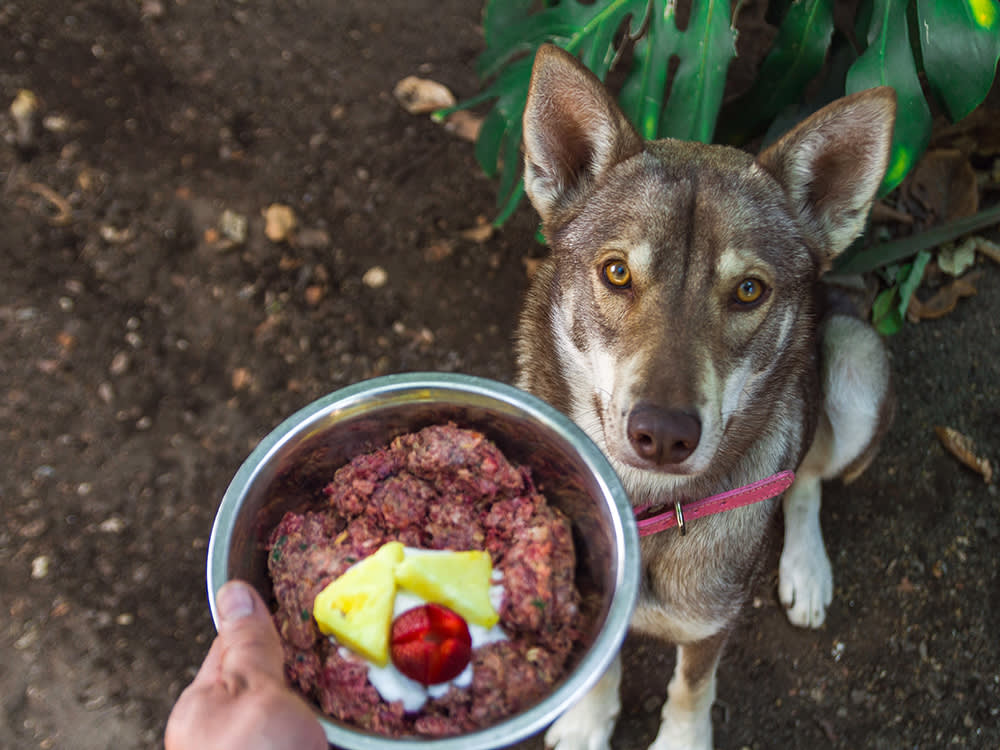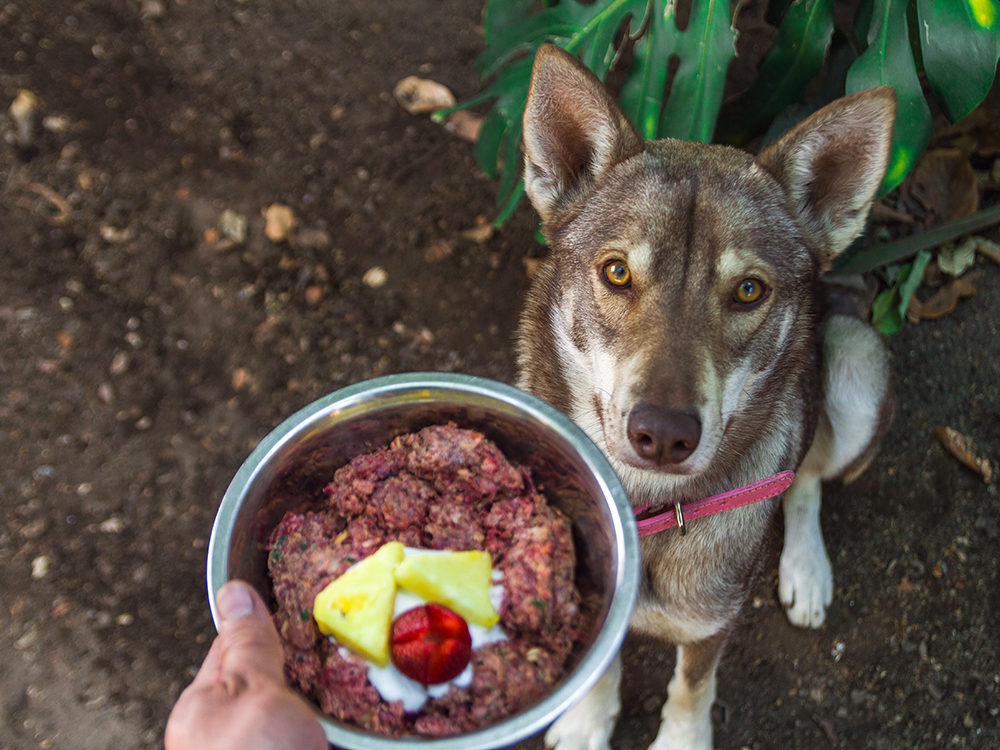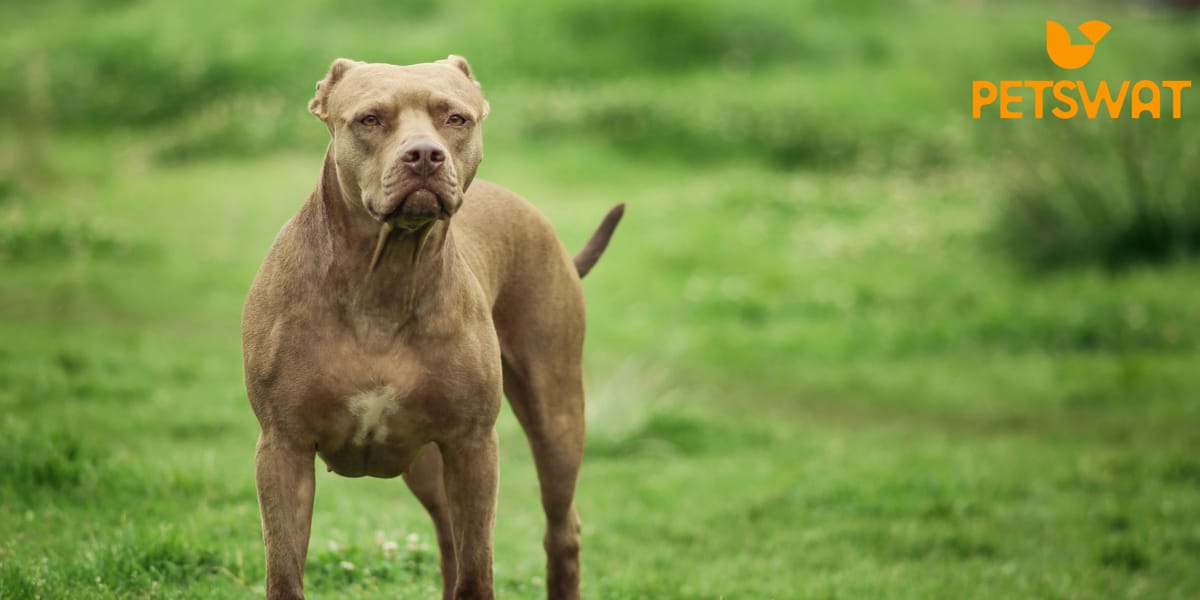If you’re looking to help your furry friend build muscle, it’s important to provide them with the right nutrition. The best dog food for muscle gain should be high in protein, low in fillers and artificial additives, and tailored to your dog’s age and activity level.
Additionally, supplements like protein, amino acids, and omega-3 fatty acids can also support muscle growth. Remember to follow feeding guidelines, monitor your dog’s weight and muscle development, and consult with a veterinarian for personalized advice.
Importance of proper nutrition for muscle gain in dogs

Just like humans, dogs need proper nutrition to build and maintain muscle mass. Whether your dog is an athlete, a working dog, or simply needs a little extra muscle, providing them with the right nutrients is essential. A balanced diet can help support muscle growth, improve performance, and enhance overall health and well-being.
Key nutrients for muscle growth in dogs
To promote muscle gain in dogs, it’s important to focus on key nutrients that support muscle growth. These include protein, fat, carbohydrates, and essential vitamins and minerals.
Protein
Protein is the building block of muscles and plays a crucial role in muscle development. Look for dog foods that have a high protein content, ideally from animal sources like chicken, beef, or fish. Aim for a minimum of 25% protein in your dog’s diet, but higher levels may be beneficial for muscle gain.
Fat
Fat is another important nutrient for muscle growth in dogs. It provides energy and helps support healthy muscle function. Look for dog foods that contain healthy fats, such as omega-3 fatty acids from sources like fish oil. Avoid excessive fat content, as it can lead to weight gain rather than muscle gain.
Carbohydrates
Carbohydrates are a source of energy for dogs and can help fuel their muscles during exercise and physical activity. Look for dog foods that contain complex carbohydrates like whole grains and vegetables, rather than simple carbohydrates like corn or wheat.
Vitamins and minerals
Vitamins and minerals are essential for overall health and muscle function in dogs. Look for dog foods that are fortified with a wide range of vitamins and minerals, including vitamin E, vitamin C, B vitamins, calcium, and phosphorus. These nutrients can support muscle growth and recovery.
Choosing a high-quality dog food for muscle gain

When selecting a dog food for muscle gain, there are a few key factors to consider.
Look for a high protein content
As mentioned earlier, protein is crucial for muscle growth. Choose a dog food that has a high protein content, ideally from animal sources. Read the ingredient list and look for specific meat sources like chicken, beef, or fish.
Avoid fillers and artificial additives
Fillers and artificial additives provide little nutritional value and can hinder muscle growth. Avoid dog foods that contain excessive amounts of fillers like corn, wheat, or soy. Additionally, steer clear of artificial colors, flavors, and preservatives.
Consider the dog’s age and activity level
Different dogs have different nutritional needs based on their age and activity level. Puppies and highly active dogs may require more calories and nutrients to support muscle growth. Choose a dog food that is specifically formulated for your dog’s life stage and activity level.
Consult with a veterinarian
Every dog is unique, and a veterinarian can provide personalized advice on the best dog food for muscle gain. They can take into account your dog’s specific needs, health conditions, and any dietary restrictions. A veterinarian can also recommend specific brands or formulations that may be beneficial for muscle growth.
Here is the summary table that the PetSWAT team has compiled for you:
| Protein Content | Look for high protein content (around 25-30% or more) to support muscle development. |
| Quality Ingredients | Choose easily digestible protein sources (chicken, turkey, beef, fish) and avoid fillers. |
| Amino Acids | Seek foods with a balanced profile of essential amino acids to promote muscle growth. |
| Healthy Fats | Include sources like fish oil, flaxseed, and chicken fat for energy and overall health. |
| Carbohydrates | Don’t neglect carbohydrates (from whole grains, vegetables) for energy during activities. |
| Vitamins and Minerals | Opt for foods rich in essential nutrients (vitamin E, vitamin C, selenium, zinc) for health. |
| Avoid Fillers | Steer clear of excessive fillers, artificial additives, and unnecessary preservatives. |
| Consult a Veterinarian | Prioritize professional guidance before major diet changes to meet your dog’s specific needs. |
Top dog food brands for muscle gain

When it comes to choosing a dog food for muscle gain, there are several top brands to consider. These brands have a reputation for providing high-quality nutrition and supporting muscle growth in dogs that we recommend:
1. Orijen Adult Dog Food: This high-protein dog food is made with fresh regional ingredients including free-run chicken and turkey, wild-caught fish, and whole eggs.
2. Blue Buffalo Wilderness High Protein Dry Dog Food: This grain-free dog food is made with real meat as the first ingredient and contains a blend of antioxidants, vitamins, and minerals to support muscle growth.
3. Taste of the Wild Grain-Free High Protein Dry Dog Food: This protein-rich dog food is made with real roasted meat and a blend of fruits and vegetables for optimal nutrition.
4. Wellness CORE Grain-Free Original Recipe: This grain-free dog food is packed with high-quality protein sources such as deboned turkey, chicken meal, and salmon meal.
Remember, it’s always a good idea to consult with your veterinarian before making any changes to your dog’s diet, especially if they have any specific dietary needs or health conditions.
Supplements for muscle gain in dogs
In addition to a high-quality dog food, supplements can also support muscle gain in dogs. These supplements can provide additional protein, amino acids, and omega-3 fatty acids, which are beneficial for muscle growth.
Protein supplements
Protein supplements can be added to your dog’s diet to increase their protein intake. These supplements are available in various forms, including powders, treats, and chews. Choose a protein supplement that is specifically formulated for dogs and consult with a veterinarian for proper dosage and usage.
Amino acid supplements
Amino acids are the building blocks of proteins and play a crucial role in muscle growth. Amino acid supplements can help support muscle development and recovery in dogs. Look for supplements that contain essential amino acids like leucine, isoleucine, and valine.
Omega-3 fatty acid supplements
Omega-3 fatty acids have anti-inflammatory properties and can support muscle growth and recovery. These supplements are typically derived from fish oil and can be beneficial for dogs with muscle gain goals. Consult with a veterinarian for the appropriate dosage and type of omega-3 fatty acid supplement for your dog.
Feeding guidelines for muscle gain

To ensure optimal muscle gain, it’s important to follow feeding guidelines and monitor your dog’s weight and muscle development.
Portion control
Portion control is crucial to prevent overfeeding or underfeeding. Follow the recommended feeding guidelines provided by the dog food manufacturer based on your dog’s weight, age, and activity level. Adjust the portion size as needed to maintain a healthy weight and promote muscle growth.
Feeding frequency
The frequency of feeding can also impact muscle gain. Instead of free-feeding, divide your dog’s daily portion into two or three meals. This helps ensure a steady supply of nutrients throughout the day and supports muscle growth and recovery.
Monitoring weight and muscle development
Regularly monitor your dog’s weight and muscle development to assess their progress. Keep track of their body condition score and muscle tone. If you notice any significant changes, consult with a veterinarian to make necessary adjustments to their diet or exercise routine.
Conclusion

Proper nutrition plays a vital role in muscle gain for dogs. Choosing the best dog food for muscle gain involves selecting a high-quality product that is rich in protein, free from fillers and artificial additives, and tailored to your dog’s age and activity level. Supplements like protein, amino acids, and omega-3 fatty acids can also support muscle growth.
Remember to follow feeding guidelines, monitor your dog’s weight and muscle development, and consult with a veterinarian for personalized advice. With the right nutrition and care, your dog can achieve their muscle gain goals and enjoy a healthy and active life
FAQ
-
What is the best dog food for building muscle?
The best dog food for building muscle is one that is high in protein and contains essential amino acids. Look for dog foods that list meat as the first ingredient and avoid those that contain fillers or by-products.
-
What food puts muscle on dogs?
To put muscle on dogs, it is important to feed them a balanced diet that is high in protein. Look for dog foods that contain lean meats such as chicken, turkey, or beef. Additionally, you can supplement their diet with healthy snacks like boiled eggs or cooked lean meats.
-
How can I help my dog gain muscle?
To help your dog gain muscle, provide them with regular exercise and a balanced diet. Make sure they are getting enough protein in their meals and consider adding supplements such as fish oil or glucosamine to support muscle growth. Consult with your veterinarian for specific recommendations based on your dog’s breed and health condition.
-
What is the best protein for dogs muscle gain?
The best protein for dogs’ muscle gain is high-quality animal protein. Look for dog foods that contain real meat as the primary source of protein, such as chicken, beef, or fish. Avoid dog foods that rely heavily on plant-based proteins or fillers. Additionally, you can supplement their diet with lean meats or protein-rich treats.
Originally posted 2023-08-14 06:48:09.


